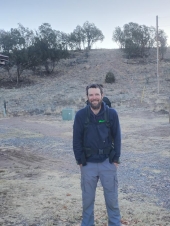posted 6 years ago
Traditionally, Aesop's Fables have been incredibly useful, like biblical parables, but more accessible in most cases.
In the same vein, I would suggest the rich and diverse tales of indigenous peoples from the Americas, Australia, the Arctic circle, basically wherever you can find them.
Truly, these are usually non-denominational tales told to illustrate moral lessons, but they can be useful.
Incidentally, I like the idea of sourcing your spirituality lessons from widely varying sources.
I am wondering, though, what the end goal of spiritualising children is. I don't believe you need to attach spirituality to morality tales in order to make them teachable. Is there a point?
I am not saying there's anything wrong with doing so, just that, at this stage of cultural development, for some it could prove counter-productive.
Spirituality arose as stories, likely analogising life, used to teach people, probably specifically children, about the world, about how it works, and why. They were also conveying traditions, cultural biases, and cautionary tales about behaviour that conflict with life in society. Religion formalised worship, and then further funneled all wonder and everything supernatural into one mental space and called it god, or divinity, or what have you.
While people can do as they like, I like to remember the last two lines of the Wiccan Rede:
Eight words the Wiccan Rede fulfill:
'An it harm none, do what ye will.
I strongly feel that if spirituality or religion stifle intellectual, social, or personal development, that it is doing harm. Certainly any religious belief that preaches intolerance or hate is an obvious example, but also harmful is the idea, borne of broken or misunderstood religious mentalities, that it is possible to do nothing, hope really hard, and that the universe will provide something. This is a recipe for wasted time and effort. It doesn't have to be that way, but in a lot of cases, god becomes an excuse, something to blame for personal failures.
But it doesn't have to be that way. As an example, Santa Claus can be used to teach children about the joy of giving, even though those same stories can easily be twisted and commercialised, turning the joy of giving into the empty dissatisfaction of unrealistic wants unrealised.
I like the idea of Karma/Dharma, and the Wiccan principle of Three-fold Return to teach ideas of treating others as one would like to be treated. As to the afterlife, I like what physics has to say about energy being indestructible, about fractals repeating in nature, and how like the law of conservation of energy, there seem to be other congruent conservation laws. Reincarnation is messy, but works to my mind, much better, I think, than each soul getting a single kick at the can, and their eternal dispositions determined by that.
I will teach by story. Children love stories. Most persistent bible tales are those told to children by their parents (who else would believe a story about a wooden ship larger than any in history, still too small to fit the hundreds of thousands of pairs of animals), and they are remembered their whole lives long.
I just want to be sure that I am telling stories that teach what I intend to teach, that open doors and windows and minds rather than closing them, that encourage curiosity and investigation as opposed to attributing big, complex ideas to mysticism, and then dismissing them, except for lip-service paid weekly.
I hope this is both useful and not too much of a downer. We all want to do the best we can for our children. That's already a great step forward. Let's make sure the stories we tell them instill in them what we wish to have flourish there.
-CK
A human being should be able to change a diaper, plan an invasion, butcher a hog, conn a ship, design a building, write a sonnet, balance accounts, build a wall, set a bone, comfort the dying, take orders, give orders, cooperate, act alone, solve equations, analyze a new problem, pitch manure, program a computer, cook a tasty meal, fight efficiently, die gallantly. Specialization is for insects.
-Robert A. Heinlein

 2
2




 2
2




 2
2








 1
1












 3
3








